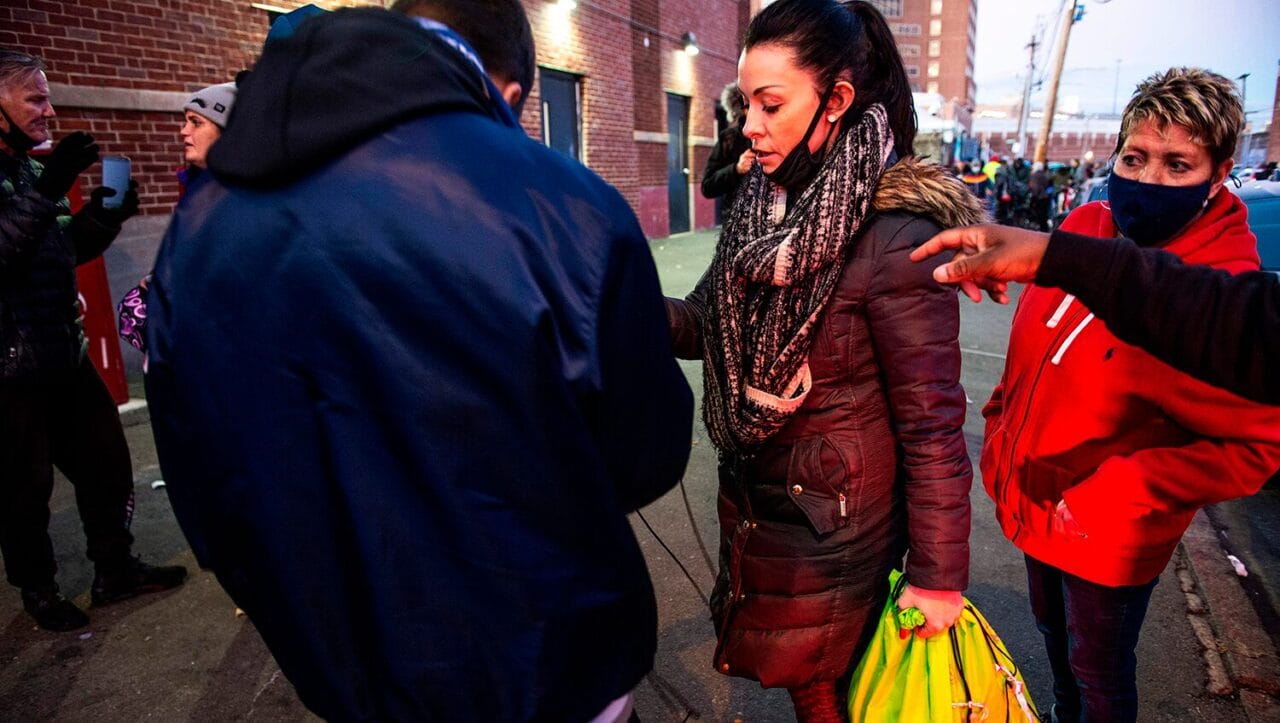Communities That Implement Post-Overdose Outreach Programs Have Fewer Opioid Overdose Deaths
March 16, 2023

SolStock, Getty Images
Non-fatal opioid overdose is a leading risk for overdose death. Post-overdose outreach programs offer an opportunity to connect to help.
The Bottom Line
When cities and towns in Massachusetts with high rates of emergency overdose responses implemented post-overdose outreach programs, those same municipalities were associated with lower opioid overdose death rates over time.
Context
Over the last decade, deaths from opioid use disorder (OUD) in the U.S. have increased to exceed half a million, proving to be a significant public health problem. The burden of OUD disproportionally impacts communities of color and economically marginalized groups due to historic and current exclusion from healthcare and other support services.
Given that individuals who have experienced a non-fatal opioid overdose are at an increased risk of experiencing a fatal overdose, significant efforts have been made to address the burden of OUD. This plays out on the community level by expanding Naloxone education and distribution programming, and it plays out on a more individual level by expanding the types of medication available for individuals with OUD, such as buprenorphine, methadone, or naltrexone. Likewise, Good Samaritan laws have been put in place to ensure individuals seeking medical assistance for themselves or others when experiencing drug-related overdoses will not be charged or prosecuted for a crime.
Further, communities have developed post-overdose outreach programs to engage people who have survived an overdose, to try to reduce the risk that the next overdose will be fatal. These programs, typically a collaboration between public health and public safety staff, use contact information collected during a non-fatal overdose reversal to engage survivors after their overdose. During these outreach encounters, staff provide survivors and their families with information and resources to access harm reduction services and treatment.
Study Objective
To determine the efficacy of post-overdose outreach programs in Massachusetts municipalities that had high rates of emergency responses related to opioid use.
The Details
Researchers conducted a multi-site analysis by looking at trends in emergency response rates for opioid-related overdoses throughout the Commonwealth of Massachusetts’s 351 municipalities between the years 2013 and 2019. They also looked at when outreach programs were established in all 351 cities and towns by conducting a survey between February and November 2019, and they used that data to compare against the trends in emergency responses to determine associations with program implementation.
Click to enlarge
Findings
Researchers honed in on 93 cities and towns with the highest rates of emergency response rates for opioid-related overdoses. Of those 93 municipalities, 58 had a post-overdose outreach program, 28 did not, and 7 lacked information on their program implementation.
In municipalities that had a high number of opioid-related emergency responses, post-overdose outreach program implementation was significantly associated with lower opioid death rates over time compared to those without. What’s more: Cities or towns with an outreach program had reduced their opioid-related emergency encounter rates.
Researchers noted that, given inadequate current and historical access to healthcare and other support services for Black, Hispanic, and Indigenous people, individuals from these marginalized groups may not be effectively benefitting from services offered by outreach programs.
For the future, the researchers recommend programs be designed with the awareness of racial and ethnic disparity in OUD and opioid overdoses and deaths.
Pull Quote
“Because nonfatal opioid overdose is a leading risk for fatal overdose, post-overdose outreach programs offer a unique opportunity to address overdose among high-risk people — providing the critical access to harm reduction or treatment they need,” says senior author Alexander Walley, MD, MSc, Clinical Addiction Research and Education Unit at Boston Medical Center’s Grayken Center for Addiction, in a press release. “The results of this research are encouraging and set the stage for further work to learn how these programs work and how they can work best.”
Xuan Z, Yan S, Formica S, Green T, Beletsky L, Rosenbloom D, Bagley S, Kimmel S, Carroll J, Lambert A, Walley A, (2022). “Association of implementation of post-overdose outreach programs with subsequent opioid overdose deaths among Massachusetts municipalities.” JAMA Psychiatry.



